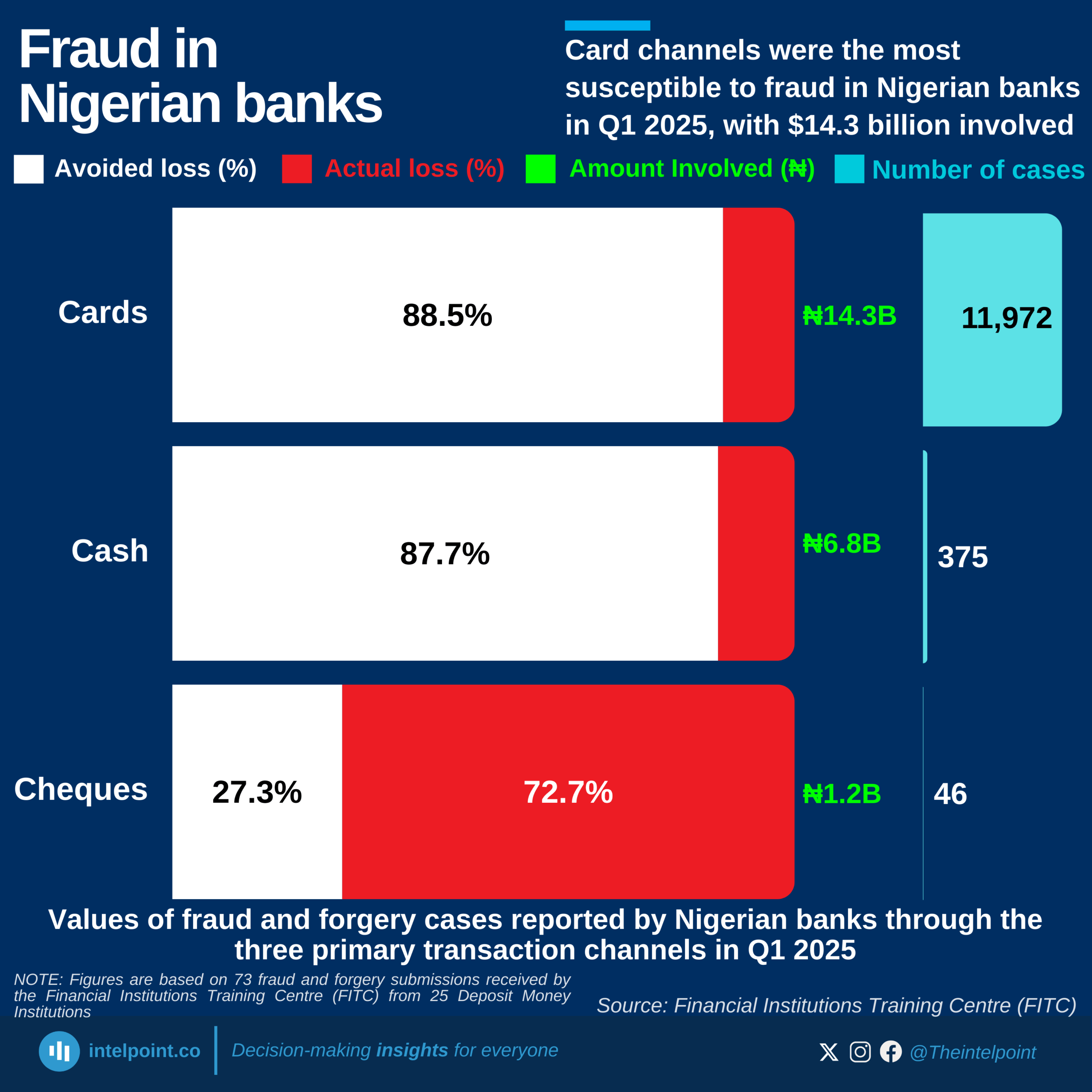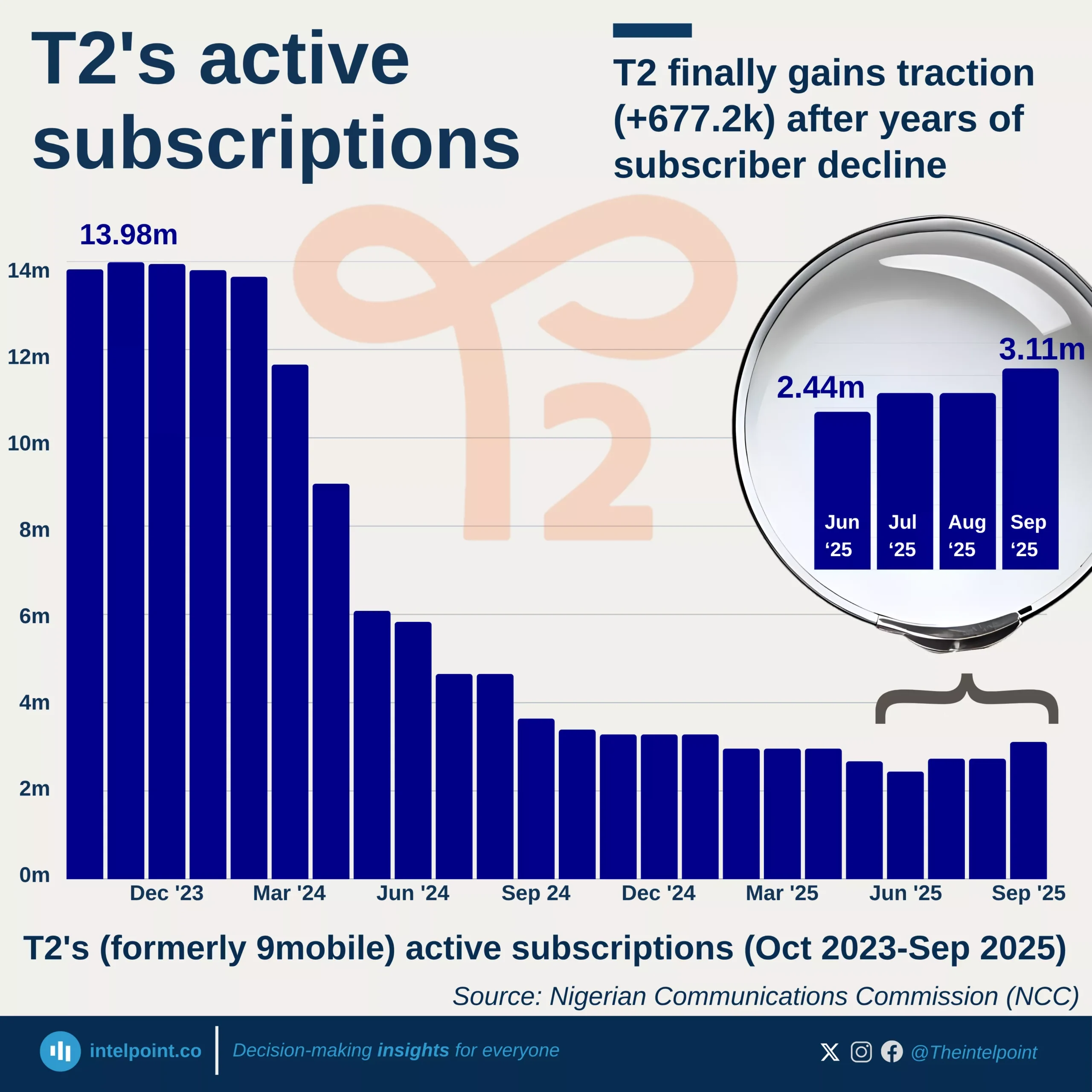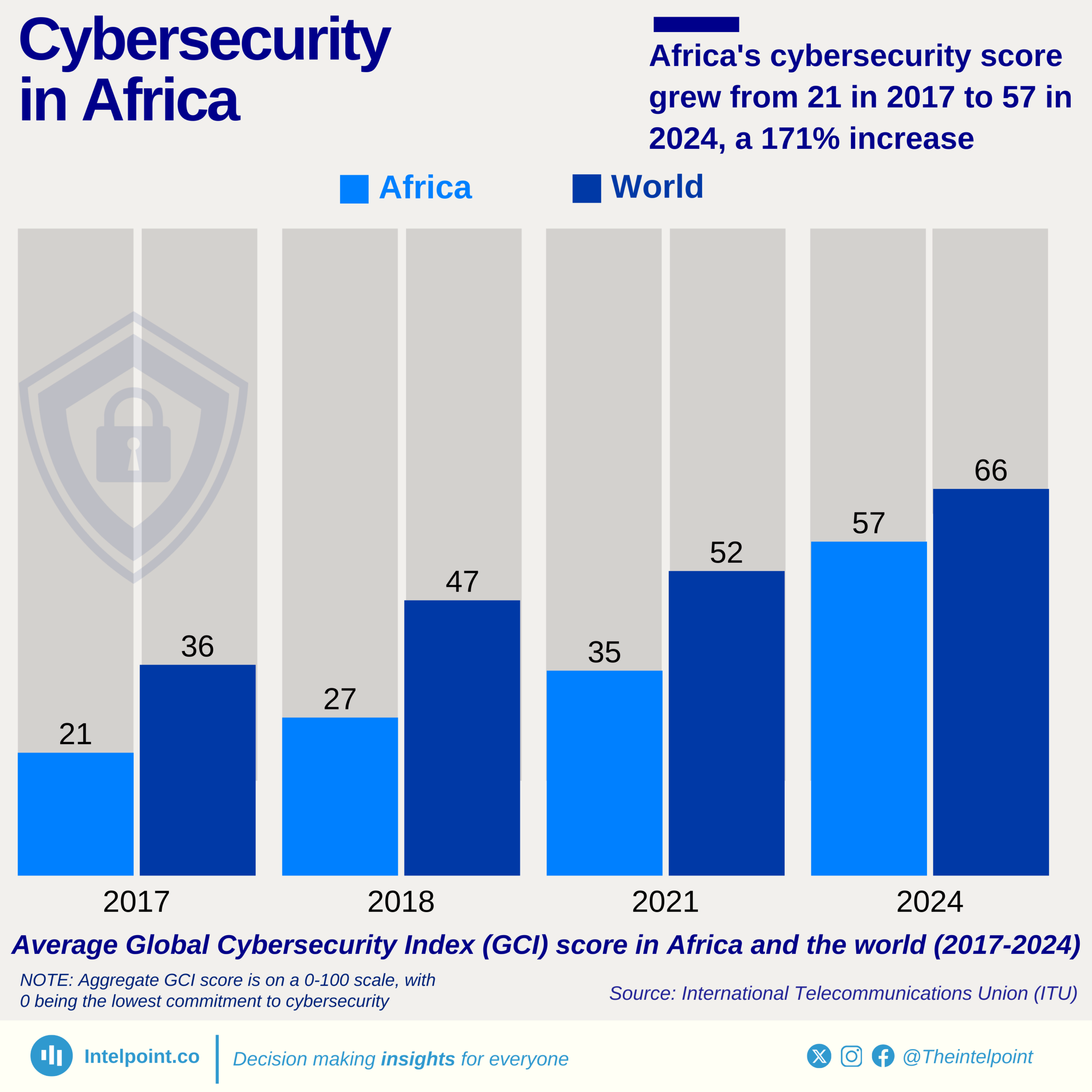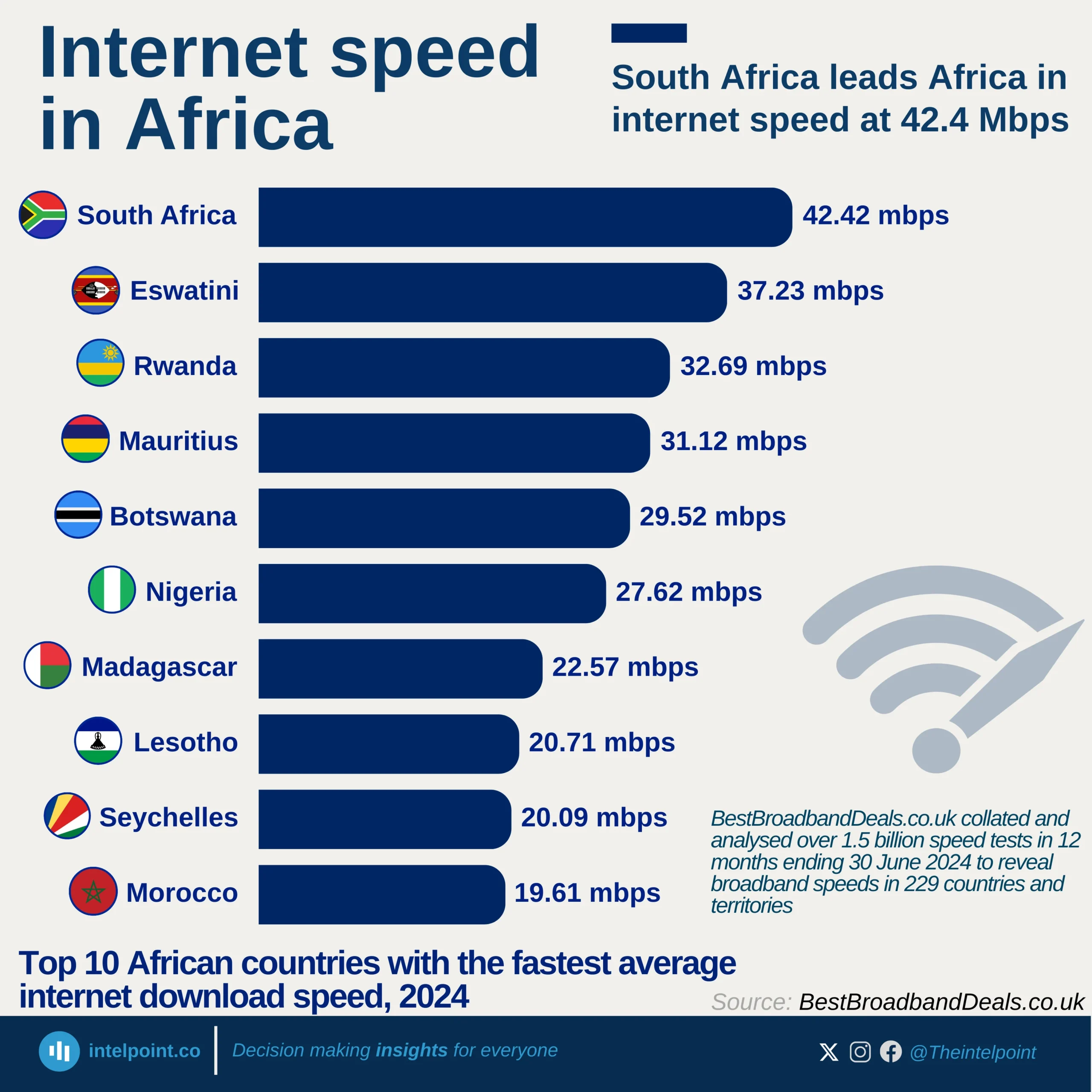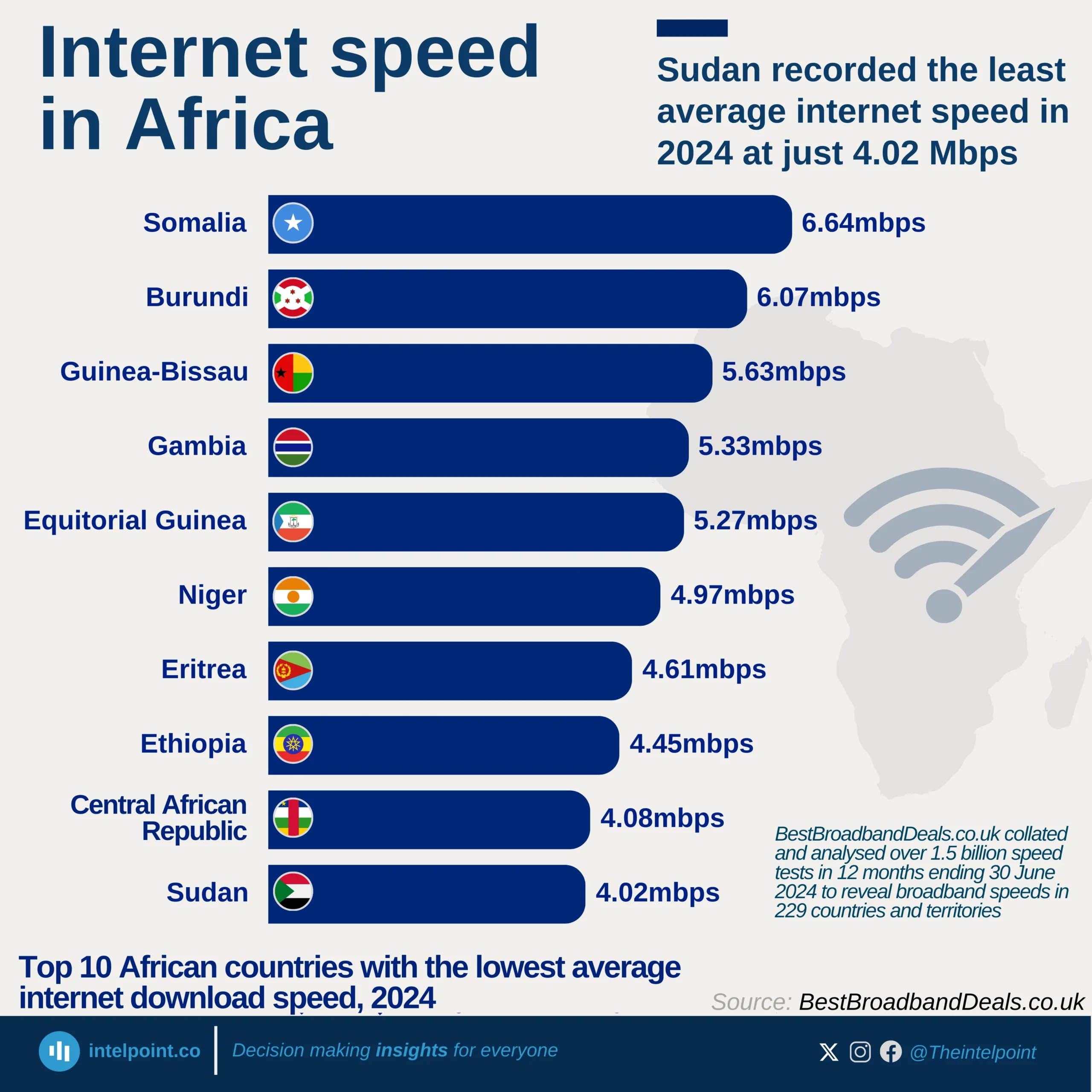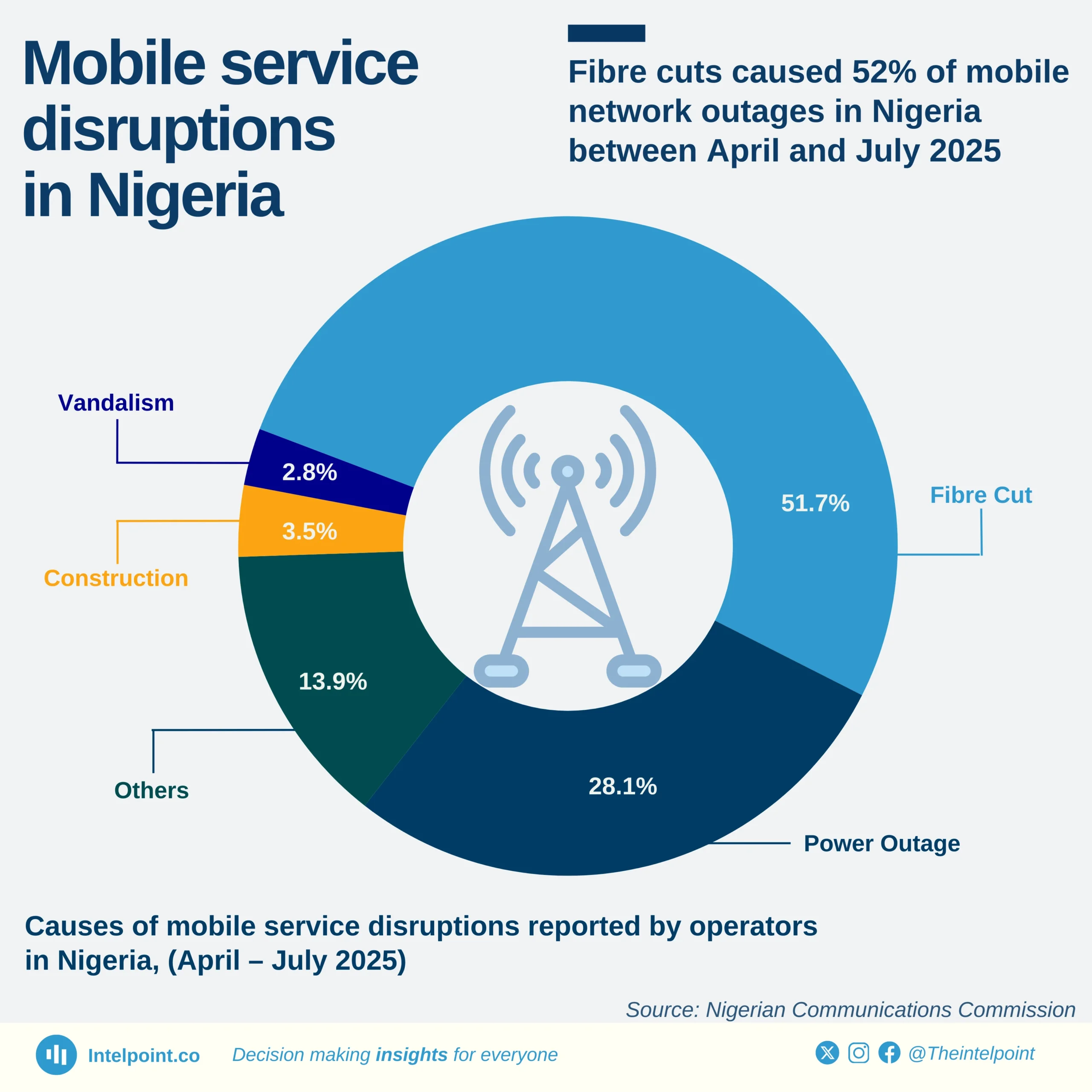In October 2023, Nigeria's telecommunications market was dominated by 2G networks, which held a commanding 60% of the market share. This reflected a continued reliance on older mobile technology, despite the availability of more advanced options.
By October 2024, 4G networks had grown significantly, capturing 43.6% of the market and surpassing 2G as the leading mobile generation. This nearly 50% growth in 4G adoption signals a major shift toward faster and more reliable connectivity, driven by increasing demand for modern telecommunications services.
While 3G saw a slight dip from 9.9% to 9.4%, 5G began to make its mark with a modest 2.3% share by October 2024. The transition from 2G to 4G demonstrates the industry's evolution, with 5G adoption expected to grow as deployment expands in the coming years.
